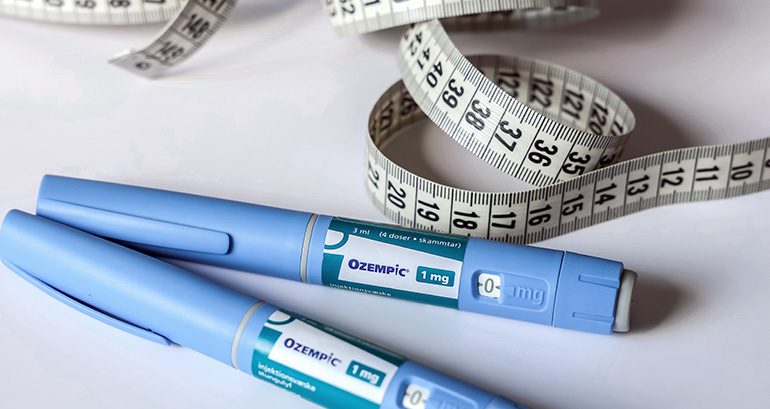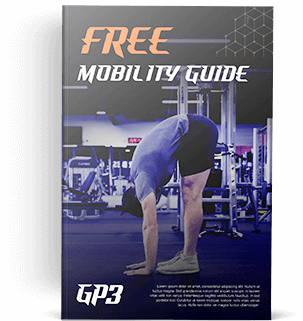Key Points:
- Ozempic could offer a way for people to legitimately reset their relationship to food and hunger.
- If this is the case, I’d encourage anyone who needs to lose more than 20% of their body weight to give it a try, paired with nutrition and habit coaching.
- However, the possibility does exist that the body could “fight back” after one stops using the drug. If that’s the case, it’s probably not worth it. In order to avoid further speculation, I eagerly await some longer-term data.
Estimated reading time: 7-14 minutes
Listen to this article on Spotify!
In the past few weeks, likely due to the explosion of media attention received by Ozempic, multiple clients have asked for my opinion on it. As I considered my stance, I was surprised at how much my views on this type of intervention had changed in the past ten years. A younger version of me absolutely would have considered measures such as Ozempic, lap bands, or bypass surgeries to be “cheating,” or “taking the easy way out,” but now, I don’t feel that way at all. I’m going to explain why, but first we need to dive into some background information.
What is Ozempic?
For those unfamiliar, this injectable drug seems like it has the potential to be the elusive “miracle weight loss cure” Western society has been pursuing for decades. This article from HMRI succinctly explains how Ozempic works. The following paraphrased portions highlight the important bits.
“The active ingredient in Ozempic is semaglutide, which works by inducing satiety, the feeling of being satisfied or “full.” This suppresses appetite, which is why it works for weight loss.”
“Semaglutide works by mimicking the role of a natural hormone, called GLP-1 (glucagon-like peptide-1), normally produced in response to detecting nutrients when we eat. GLP-1 is part of the signaling pathway that tells your body you have eaten, and prepares it to use the energy that comes from your food.”
“A diet high in GLP-1 stimulating nutrients can increase GLP-1 levels. This is why high fat, high fiber, and high protein diets can all help you feel fuller for longer.”
“However, it’s not necessarily that simple for everyone. When we diet and restrict energy intake, we get more hungry. And for some people, that ‘set point’ for weight and hunger might be different.”
“Some studies have shown GLP-1 levels, particularly after meals, are lower in people with obesity. This could be due to reduced production of GLP-1. Or, the receptors that detect it might also be less sensitive, or fewer in number. These differences could be the result of [natural variations] in the genes that code for GLP-1, the receptors, or parts of the pathways that regulate production. These genetic differences are things we can’t change.”
That last bit is especially important…
When reflecting on the “easy way out” viewpoint my younger self surely would have held, I realized something important. It’s highly likely that there are individuals who experience levels of hunger similar to what I experience after a 36-hour fast…every single day. Perhaps even multiple times per day.
As I often tell clients, when your hunger reaches those levels, all bets are off. You can’t expect yourself to make optimal nutritional decisions in a state of hunger that intense. The trick is to learn to “befriend” feelings of mild to moderate hunger and avoid feeling ravenous. But, what if due to a quirk of your genetics, you can’t avoid that? What if it’s a daily experience for you?
That sounds both miserable and incredibly unfair. And that’s why my position has softened. I’m incredibly lucky to have a metabolism and hormone levels that allow me a relatively easier time maintaining my weight and body fat percentage. For that reason, it would be pretty tone deaf of me to cast judgment on the struggles of anyone who has it harder. So, Ozempic could offer people who were dealt a rough genetic hand a way to manage their hormone-induced levels of intense hunger.
But first, two caveats.
One, Ozempic is technically a diabetes drug.
While this pharmaceutical breakthrough has helped many people struggling with weight loss, that’s still an off-label usage. This doesn’t mean you won’t find a host of doctors to prescribe it, eager to capitalize on its profit potential. But, this has led to less availability for individuals with diabetes who need it to manage their condition. However…
Recently, a new, weight loss-focused drug called Wegovy has hit U.S. markets. Also utilizing semaglutide as the active ingredient, Wegovy could offer the route to faster, easier weight loss that so many crave. And this is where the second caveat comes in.
In my opinion, a drug this powerful should be reserved for individuals who need to lose at least 15% of their body weight, and I could easily be convinced to raise that threshold to 20%. Here’s some concrete numbers to help us understand.
This standard would mean a 200-pound individual who needed to lose 40 pounds would definitely qualify for Ozempic or Wegovy. If they were aiming to lose 30 pounds, they likely would as well. But, they would not be eligible if they only wanted to lose 20 pounds.
Here’s why. While this is mostly anecdotal, based on my experience with helping clients, nearly anyone can lose 5% of their body weight relatively quickly, with small and simple changes. In the case of our hypothetical 200-pound person, that’s 10 pounds. Losing 10% of your body weight (20 pounds in their case) is more challenging, but definitely still doable with patience and a strategic approach.
Past this threshold, however. The body starts to fight back harder. Hunger levels increase, thoughts of food become more frequent and more all-consuming, and weight loss becomes much more challenging. Not impossible, mind you, but certainly slower and with more effort required.
And this is where Ozempic has a ton of potential.
Ozempic could offer a legitimate reset to one’s levels of and relationship to hunger. This would make it perfect for kickstarting weight loss or busting through a plateau, like the one often seen after dropping 10% of one’s body weight. Ideally, its use would be paired with nutrition coaching, so that people taking it could more easily learn and practice the skills of mindful eating, managing hunger, and planning meals. In my opinion, these skills are vital for long term weight maintenance, and this coaching would prepare them for transitioning off the drug once they achieved their goals.
If Ozempic can indeed offer this “hunger reset,” I would encourage many people to consult with a doctor or nutritionist about giving it a shot, just like I would encourage someone to squat with a light dumbbell before a barbell or use banded assistance before attempting Nordic Hamstring Curls.
Why not make the beginning and difficult steps of a challenging endeavor easier, rather than bashing your head against the wall by insisting on doing things the hard way? This obviously assumes the physician in question doesn’t have conflicts of interest related to making a huge profit from prescribing Ozempic and that the risks of potential side effects don’t outweigh the benefits, but the point stands.
If these drugs can help people through the periods of weight loss that are most frustrating, tedious, and demotivating while also helping them develop weight-maintenance skills, I’m 100% for it.
However…
We don’t yet know if Ozempic works in this fashion. Therefore, here are two parallels I’d like to make for the sake of caution.
The first is with TRT, or testosterone replacement therapy. Multiple friends of mine in their 30’s and 40’s have started this intervention. This is fairly common practice for that age range, there are legitimate medical reasons for its use, and TRT has multiple health benefits.
Unfortunately, you also need to take it for the rest of your life. Once someone stops, their testosterone levels will return to the previous, lower baseline that led them to undergo TRT in the first place. Their T levels may even temporarily dip lower still, since their body will have become “out of practice” with regards to maintaining pre-treatment levels. When one knows and is prepared for all of this going into a hormonal treatment, there’s no problem, but these facts must at least be considered.
The next example hits particularly close to home.
It’s been over a year since I decided to permanently rock a gleaming chrome dome. Or in other words, accepted that I was going bald. And I won’t lie to you, I had a brief, one-day freak out when I realized how noticeable my hair loss had become. So, I explored the existing solutions, and what I found…wasn’t promising.
Among the myriad snakeoil options, only one of the two most commonly used chemical compounds had any potential to regrow hair, and the success rate wasn’t great. Even further, one of its most common side effects was (drumroll, please) erectile dysfunction. Talk about a Faustian bargain, huh?
The other commonly-prescribed compound wouldn’t regrow hair, but it did have a high success rate in preventing further hair loss, with one catch. As soon as you stop taking the drug, you experience a phenomenon known as “shock loss.” When this happens, you rapidly lose all the hair you would have lost if you had not been taking the drug, sometimes in a matter of a few days. To both of those options, I politely said, “No thanks,” and simply decided shaving my head was the way to go.
But, what do TRT and male-pattern baldness have to do with weight loss?
Well, as I’ve mentioned, we don’t yet know the long term effects that accompany Ozempic. So, it’s possible that a similar “shock loss” effect may result after one stops using it…only in this case, “shock gain,” would be a more appropriate term. It’s not outside the realm of possibility that after ceasing an Ozempic or Wegovy regimen, GLP-1 levels could plummet, leading to massive and nearly unmanageable hunger spikes. Rapid weight gain would almost surely follow.
And that’s the key point. While the skill of managing mild to moderate hunger can and absolutely should be developed, it’s not realistic to expect yourself to deal with starvation-level hunger every single day and maintain an optimal body fat percentage. Now, don’t get me wrong here, if your plan is to use Ozempic to never feel hungry again, or never experience cravings for indulgent foods, I’ve got bad news for you. That’s not going to happen. Learning to manage these two realities is necessary.
However, this is where I’m hopeful that Ozempic could be a true game changer. I’ve read instances of people reporting such a difference in hunger levels while on Ozempic that they wonder, “Is this what some people feel like all the time?” And that’s powerful. Experiencing a shift away from our default state makes us realize, “It doesn’t have to be this way.”
This is part of the reason I recommend people periodically undergo a 24 to 36 hour fast. Doing so shows us that our bodies can easily go without food for much longer than we think, and that hunger doesn’t need to control us. This realization can stick with us for months, and even permanently if fasting becomes a regular practice.
And if Ozempic can offer the same sort of shift, with faster, easier weight loss and minimal ill effects afterwards, I’m all for it. Especially if paired with coaching on the skills needed to maintain weight after using it, we could have something truly life-changing. And wholeheartedly pursing a transformation of that magnitude is definitely not taking the easy way out.
Before you go, I’d love to hear from you. What are your thoughts on Ozempic? Would you try it or recommend it to someone you care about? Under what circumstances? Reply to this email and let me know!

